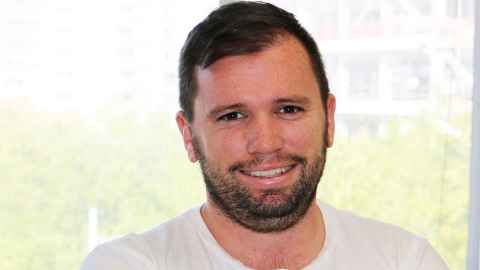‘Virtual therapist’ researcher awarded Rutherford
10 October 2019
An engineering researcher developing virtual therapy technology has been awarded a Rutherford Discovery Fellowship.

Associate Professor Andrew McDaid is one of eleven Fellows for 2019. The Fellowship provides $800,000 in funding over five years.
His work is focused on combining leading-edge data techniques with wearable robotics, artificial intelligence (AI) and machine learning to create devices capable of personalising rehabilitation and recovery plans which are cheaper and more efficient than humans.
Currently rehabilitation after a medical event such as stroke is carried out by trained physical or occupational therapists but much of the work is physically demanding and the cost is relatively high and time-consuming.
While some robotics devices used for physical rehabilitation have been developed overseas, they lag far behind what a human therapist is capable of.
“The current technology has little or no intelligence and can only act on predefined rules, so it’s not tailored to individuals and doesn’t have the ability to adapt and learn as a human therapist would.”
Associate Professor McDaid’s work takes a strongly data driven approach, looking at the fundamental physiology of human movement and building on that information to create individual recovery plans which take into account the effects of a diverse range of physical impairments.
His goal is to make real progress towards creating low-cost robotic ‘virtual therapists’ with the ability to deliver automatic but very precise treatments.
The Rutherford Discovery Fellowships, managed on behalf of government by the New Zealand Royal Society Te Apārangi, aim to attract and retain talented early- to mid-career researchers by helping them establish a track record for future research leadership.
Associate Professor McDaid says he is delighted to have his work recognised through the Fellowship.
“The high costs of healthcare not just in New Zealand but around the world means that progress in the area of medical technologies and personalised therapies and treatments needs to be prioritised and I’m very happy to have been supported to pursue this work.”
Media contact
Anne Beston | Media adviser
DDI 09 923 3258
Mob 021 970 089
Email a.beston@auckland.ac.nz